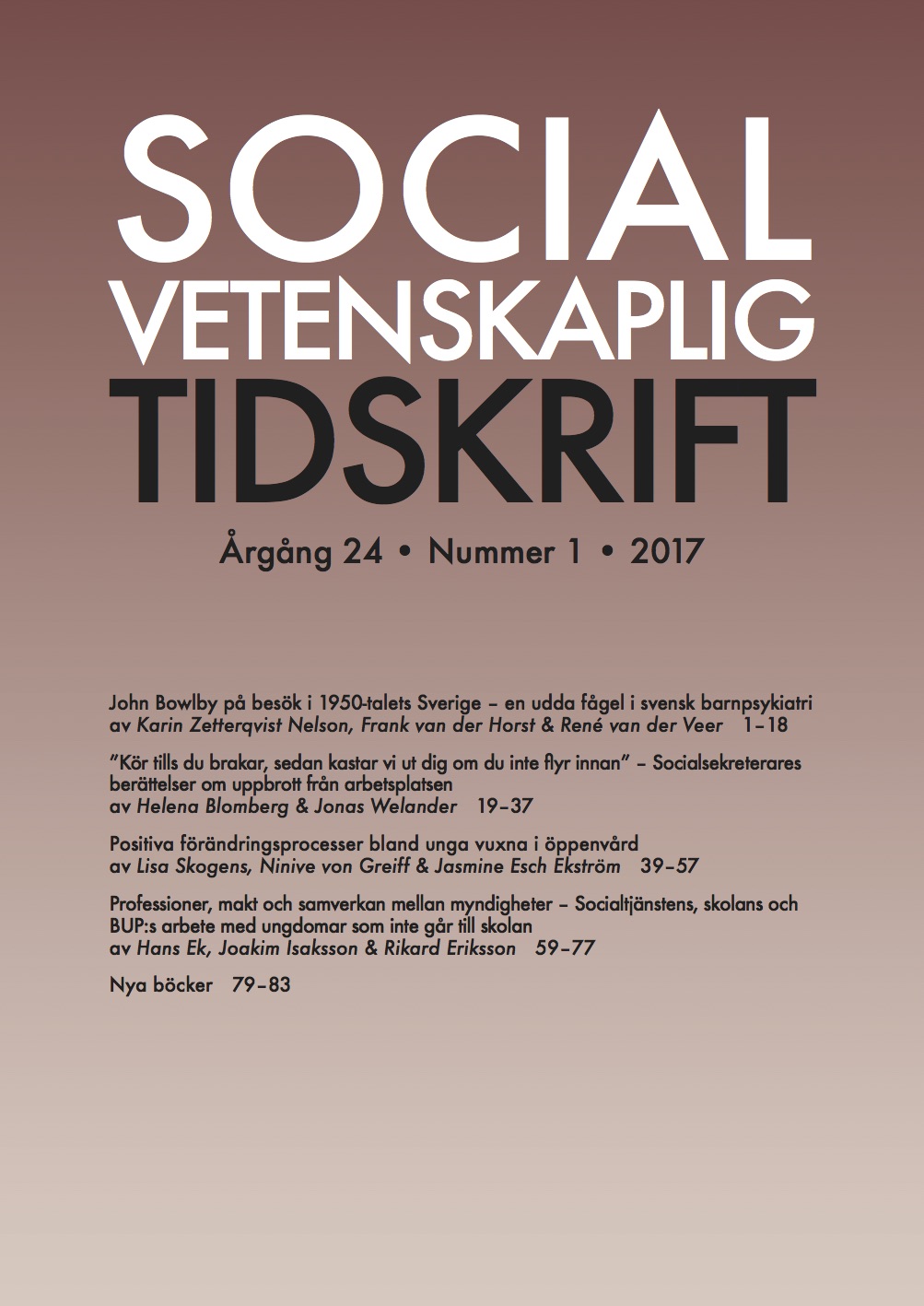Professioner, makt och samverkan mellan myndigheter
DOI:
https://doi.org/10.3384/SVT.2017.24.1.2402Abstract
Professions, power and collaboration between authorities: Social Services, schools, and Child and Adolescent Psychiatry Services working with adolescents who do not go to school
School non-attendance is often a sign of a complex combination of dierent kinds of problems, which means that these children and young people are often in need of composite help from several dierent types of professions within various authorities. e purpose of the study was to examine how school authorities, the Social Services and Child and Adolescent Psychiatry (BUP) collaborate in their work with young people who do not go to school. e study comprised a thematic analysis of qualitative interviews with managerial representatives of the respective autho- rities. e empirical material consisted of 12 qualitative interviews with heads of units at BUP (5 individuals), section managers from Social Services (3 individuals) and principals from compul- sory schools (4 individuals) in three municipalities in western Sweden. According to the results, it seems problematic to manage the positions of power that may arise in collaboration between the parties. A position of power thus implies the right to make a decision as a profession as well as acti- vities that are related to each other. e right to make a decision means the mandate to determine which measures should be put in place for the young people and their families. is study also shows that the parties should develop a common knowledge base that is a combination of educa- tional, social and psychological perspectives. e common knowledge base can reduce the risk of power imbalance between the parties.
Downloads
Publicerad
Referera så här
Nummer
Sektion
Licens
Allt material i Socialvetenskaplig tidskrift publiceras sedan 2022 (Vol 28 Nr 2) med omedelbar öppen tillgång (open access), under Creative Commons-licensen CC BY 4.0. Upphovsrätten till innehållet tillhör respektive författare.
Allt innehåll i tidskriften är fritt tillgängligt utan kostnad och får fritt läsas, laddas ned, kopieras, delas, skrivas ut och länkas. När innehållet används måste författare, källa och licens anges. Författaren kan fritt göra sin publicerade text tillgänglig på institutionella och internetbaserade arkiv, exempelvis sitt lärosätes digitala arkiv eller andra tjänster för detta.
Inga publiceringsavgifter tas ut vid publicering i Socialvetenskaplig tidskrift.


